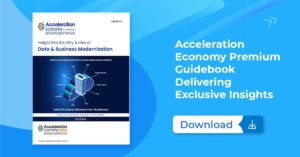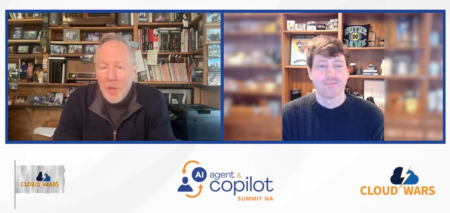
Digital transformation is an ongoing and often complicated undertaking. There are pain points and challenges along the way and, in many cases, data management sits near the top of those challenges.
With data informing virtually every aspect of digital transformation, businesses look to unify data management tools and processes to drive their transformation efforts forward. One platform provider that unifies data management in this way is Informatica, whose comprehensive, AI-powered system scales to the most demanding customer’s needs. In this profile, I’ll explain how Informatica addresses those challenges.
Informatica is on the Top 10 Shortlist of Data Modernization Enablers.
Who They Are
Informatica was founded in 1993 by Gaurav Dhillon and Diaz Nesamoney, focusing on the Extract Transform Load (ETL) software market. The company’s corporate headquarters is in Redwood City, Calif.; Informatica has a presence across the Americas, EMEA, and Asia-Pacific regions.
By mid-2000, Informatica’s reach had expanded to include emerging data integration methodologies including change data capture (CDC) and visualization. Today, Informatica focuses on cloud data technologies and AI-powered data management. The company has over 5,000 customers, including 85 of the Fortune 100, and processes more than 53 trillion cloud transactions monthly.
Publicly held Informatica reported fiscal 2022 revenue of $1.5 billion and total annual recurring revenue, or ARR, of $1.52 billion.
Amit Walia is Informatica’s CEO. Before joining Informatica in 2013, Walia served in various positions at Symantec, Intuit, and McKinsey & Company.
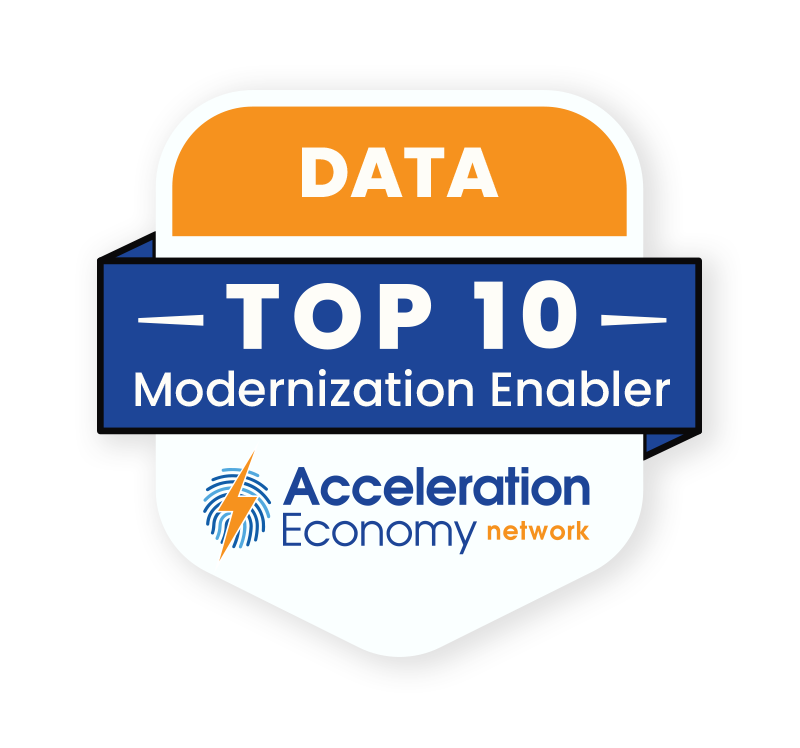
Which companies are the most important vendors in data? Check out the Acceleration Economy Data Modernization Top 10 Shortlist.
Jitesh Ghai is the company’s Executive Vice President and Chief Product Officer. Ghai pioneered the company’s approach to developing use cases in operational data integration, big data, and the Internet of Things (IoT).
Informatica’s Group Vice President of Product Marketing is John Haddad. In a recent discussion with Acceleration Economy, Haddad explained the pain points Informatica addresses in developing data-driven businesses. “Core to a digital transformation is data,” says Haddad. “As companies try to become more data-driven and leverage the abundance of data that’s available or coming at them, they invariably run into challenges.”
What They Do
Informatica’s Intelligent Data Management Cloud enables businesses to complete comprehensive digital transformations. The company sees digital transformation as a three-pronged strategy encompassing business, technology, and people.
However, Informatica recognizes that data is at the core of any digital transformation; its product enables companies to leverage data to address technology and business challenges, such as scalability, trust, cost reduction, data sharing, and access.
Informatica’s AI-powered Intelligent Data Management Cloud incorporates the core elements of a modern data management toolkit in a single cloud-native platform. Components of the Intelligent Data Management Cloud include a data catalog, data integration, API and app integration, data quality, Master Data Management (MDM), governance and privacy, and a cloud data marketplace, Informatica’s AI-powered data sharing facility designed to support democratized data access, publishing, and data delivery.
Customers can choose to use the company’s data management cloud software component by component. “Often, [customers] may start with one piece of the puzzle,” says Haddad. “Then they realize, okay, once I’ve tackled data integration, I need to cleanse the data. Once I’ve cleansed the data, I need to make sure it’s linked up into a single view of my customers.”
Intelligent Data Management Cloud runs on all the major cloud platforms, including Amazon AWS and Oracle Cloud, as well as self-managed platforms.
Informatica’s cloud data platform can connect to almost any data source, on- or off-premise. The platform’s foundation is CLAIRE, the company’s machine-learning engine fueled by metadata. “We can automate and augment thousands of tasks that data stewards, data engineers, data scientists, and data governance folks have to do on a daily basis,” says Haddad. “The only way you can scale the amount of work that needs to be done for the enterprise is through AI and machine learning.”

“We can automate and augment thousands of tasks that data stewards, data engineers, data scientists, and data governance folks have to do on a daily basis. The only way you can scale the amount of work that needs to be done for the enterprise is through AI and machine learning.”
John Haddad, group vice president, product marketing, Informatica
CLAIRE enables data consumers to reduce the complexity of data management, increase productivity, and make it easier to find data in context, with features including personalized recommendations.
Informatica recently launched a free, no-code version of its data integration tool. Informatica Cloud Data Integration-Free provides users with up to 20 million rows of data and 10 hours of processing time monthly. If users exceed this amount, they can pay as they go using the PayGo version of the service. It’s a simple way to access limited data integration services and utilize a consumption-based pricing model — a strategy we could expect to see more of from Informatica.
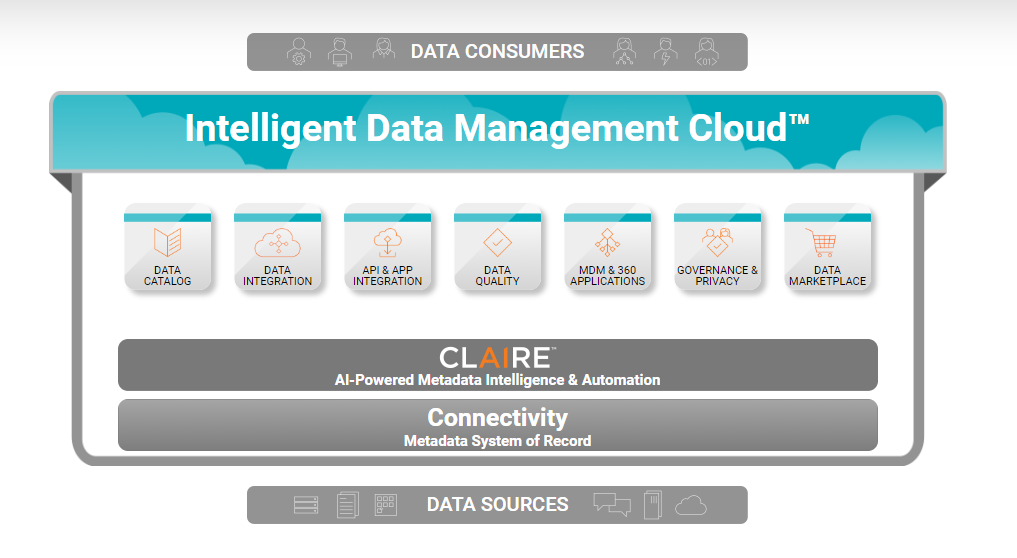
Who They’ve Impacted
One organization that capitalized — in the form of millions of dollars in sales — by using Informatica is the supermarket giant Kroger, which is a leading digital innovator in the retail and grocery fields.
The company had three core goals when it came to data management: to reduce the amount of out-of-stock products by optimizing delivery times, to guarantee vendor delivery compliance, and to recover costs associated with late arrivals while incentivizing vendors to commit to punctual deliveries.
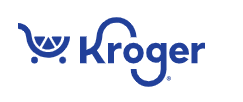
To help Kroger achieve these goals, Informatica integrated the company’s dispersed supply chain systems into a single analytics platform (Google Big Query) with data access via Tableau. Informatica enabled Kroger to analyze warehouse supply chain data dating back years.
The move from an on-premises data platform to Google Big Query slashed execution time and provided Kroger with a more scalable analytics platform. Kroger avoided millions of dollars of lost sales by using analytics — including real-time availability of inventory — to streamline delivery.
“The on-premises prototype analytics solution could take up to hours per day to execute,” says Errick Coughlin, data engineer for Kroger, in an Informatica case study. “Utilizing Informatica Intelligent Cloud Services to integrate the warehouse information from an on-premises operation data store (ODS) into Google Big Query, analytic execution time was driven down to minutes resulting in a highly-scalable, easy-to-use analytics solution.”
Why Informatica Makes Our Data Modernization Top 10 Shortlist
Our practitioner analysts chose Informatica for our list of Top 10 Data Modernization vendors for the following reasons:
- Informatica unifies various data management functions into a single platform, a key differentiator from many niche data management vendors.
- The platform benefits from a wide range of connectors to on-premise and off-premise data sources, managed and unmanaged.
- Informatica’s no-code/low-code features increase productivity and self-service data analysis.
- Informatica’s intelligent analysis powered by AI is redefining what can be achieved and unearthed.
- Major customer references including the retail/grocery digital innovator Kroger validate the tangible business value that enterprises can realize through Informatica’s software.
Want more insights into all things data? Visit the Data Modernization channel:



